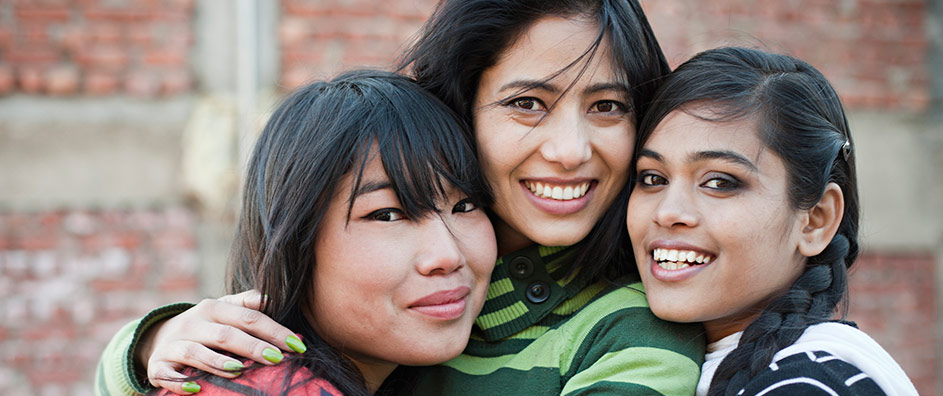Throughout history, the phrase “True Religion Never Calls for War” has resonated deeply with those engaged in the search for a harmonious existence. But can we truly say that this statement holds water in the face of humanity’s long history of conflict? It invites us to ponder: how can religious tenets, often employed as justifications for war, instead become instruments of peace? This discourse seeks to unravel the philosophical underpinnings of this assertion, while exploring the Bahá’í teachings that emphasize unity, peace, and the sanctity of all human life.
The Bahá’í Faith, a religion founded in the 19th century, posits that true religion champions love, compassion, and solidarity among all people. Central to this is the notion of the oneness of humanity, a principle that declares every individual as part of a larger collective. This perspective fundamentally challenges the very foundations upon which wars have historically been fought—territorial disputes, religious divisions, and ideological differences. By emphasizing unity, the Bahá’í teachings assert that when one group is exalted over another, conflict is inevitable.
To comprehend the claim that true religions avoid instigating warfare, we must first scrutinize the nature of religion itself. At its essence, religion serves as a moral compass, offering ethical guidelines that direct behavior and foster an understanding of the divine. However, when superficial interpretations and sectarianism seep into these teachings, the core message often becomes distorted. In this light, the Bahá’í Faith advocates for a profound examination of religious texts, encouraging adherents to embrace the spirit rather than rigidly adhere to literal interpretations.
Consider, for instance, the consequential divergence of religious paths that has emerged over centuries. Historical and contemporary conflicts, many of which present themselves under the guise of religious zeal, reveal that the underlying issues are often rooted in power dynamics, socio-political grievances, and economic disparities. In this sense, when individuals or groups cite religion as a rationale for violence, they may be utilizing religion as a veneer to disguise more complex and intricate motivations. The Bahá’í perspective calls for a reevaluation of these circumstances—prompting followers to explore and embrace the transformative principles of their faith.
The assertion that “true religion never calls for war” embodies an urgency to forge a tribune of peace rather than hostility. A prevalent teaching in the Bahá’í Faith emphasizes altruism, urging each individual to engage in service to humanity. Service manifests in myriad forms, such as addressing societal injustices, promoting education, and fostering interfaith dialogue. These actions serve to cultivate empathy and understanding—powerful antidotes to the animosity that fuels conflict. As communities engage in acts of kindness and service, they lay the groundwork for a culture of peace.
It is crucial to examine the Bahá’í interpretation of conflict resolution. The teachings assert that peace is not merely the absence of war; rather, it is an active and pervasive state of justice, equality, and community engagement. Delving into universal principles, such as the elimination of extremes of wealth and poverty, the teachings deliver a potent critique of socioeconomic disparities which often precipitate strife. By advocating for a system predicated on equity, the Bahá’í approach underscores that sustainable peace must address the roots of discontent rather than merely suppress its manifestations.
Moreover, the concept of consultation stands at the heart of Bahá’í governance, advocating collective decision-making as a means to mitigate discord. Consultation embodies a form of civility and respect for differing perspectives, creating a framework for dialogue characterized by empathy and constructive engagement. By recognizing the validity of various viewpoints and bridging divides through reconciliation and collaboration, Bahá’í teachings promote a methodology for conflict resolution that does not involve warfare.
Despite the allure of the hypothesis that religion should be devoid of violence, one must confront the reality of historical precedents. Many have, throughout history, misconstrued religious beliefs to justify acts of violence. Thus, the challenge remains: how can contemporary practitioners of the Bahá’í Faith—and indeed followers of all belief systems—rectify past misdeeds and navigate towards a future that adheres to the creed that true religion never advocates war? This necessitates genuine introspection and accountability among communities, fostering environments where dialogue replaces discord and understanding supersedes enmity.
In examining educational initiatives within the Bahá’í community, one finds a robust commitment to global citizenship and intercultural understanding. By integrating these elements within educational frameworks, the Bahá’í teachings cultivate a generation adept at navigating the complexities of a multifaceted world. Young Bahá’ís, equipped with principles of equity, diversity, and service, emerge as ambassadors of peace, armed not with weapons of war but with tools of enlightenment and coexistence.
Thus, as we grapple with the playful prompting of questioning the veracity behind the statement “True Religion Never Calls for War,” it becomes evident that the Bahá’í teachings offer a distinctive lens through which to confront this profound and puzzling aspect of human nature. The fabric of these teachings emphasizes an ever-pressing need for compassion and unity amid a history fraught with division. Ultimately, the genuine pursuit of peace—a central pillar of the Bahá’í Faith—compels humanity to move beyond strife, embracing the other with open arms and open hearts.
